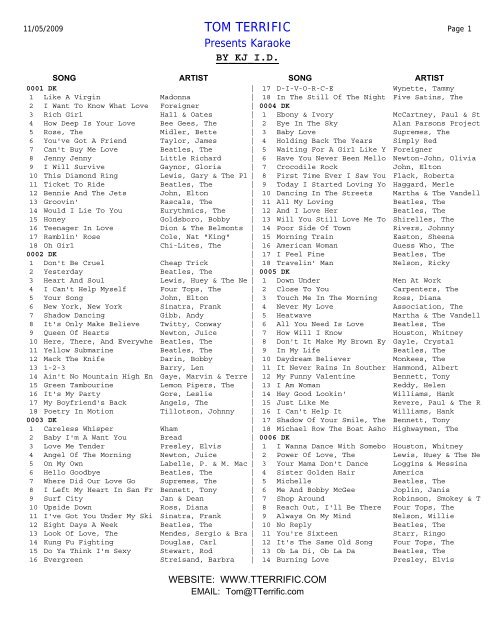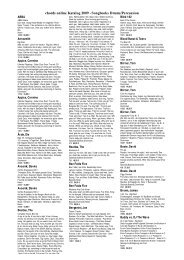Today's topic is how to use the word 'myself.' It's a reflexive pronoun just like 'himself' and 'herself.' Take the quiz at the end!
- *lesson Welcome To Mrs. Bryan's Learning Cafe Haysville
- *lesson Welcome To Mrs. Bryan's Learning Cafe Facebook
- *lesson Welcome To Mrs. Bryan's Learning Cafe Eat N Park
Add a Research Component: Instead of preparing short biographies for students, you can assign a historical figure and have students research this person’s background.It is helpful to provide students with guidelines, such as a list of questions, that outline the information you expect them to find. The Best Lunch and Learn Ideas for Employee Well-Being The Lunch and Learn or Brown Bag Sessions can be a standard in your successful wellness program. You can tailor your topics to share information that is relevant to your business and employees. Bringing in outside. Our long-anticipated summer is here. In April, I made lists of things I wanted to accomplish during this break from school: clean out the garage, go through the closets—you know, those all-important tasks that I usually wait all year to do. Distance learning resources. Online and low-tech educational resources to support Minnesota's teachers and students. Minnesota Historical Society.
*lesson Welcome To Mrs. Bryan's Learning Cafe Haysville

How to use the word “myself” is one of the top 10 or 20 questions I get. Here’s an example:
Buy Now
Hi, Grammar Girl. This is Chuck Tomasi, your interim Grammar Guy from ChuckChat.com, home of podcasts too numerous to mention. I hear and see examples of the misuse of the word 'myself' all the time. For example, an e-mail went out from HR like this, “Please contact Squiggly, Aardvark, or myself with questions.” Could you please help listeners know when the word 'myself' is appropriate and when to use a more appropriate word? Thanks!
Excellent, Chuck! Let's dissect what's wrong with that sentence: 'Please contact Squiggly, Aardvark, or myself with questions.' The simplest way to think of it is like this: How would you say the sentence without Squiggly and Aardvark? Then it usually becomes obvious! You would say, “Please contact me with questions,” not, “Please contact myself with questions.” When you add in Squiggly and Aardvark, it doesn't change anything. It's still correct to say, “Please contact Squiggly, Aardvark, or me with questions.”
What Are Reflexive Pronouns?
Digging into the topic a little deeper, “myself” is what's called a reflexive pronoun. That can be hard to remember, but just think about looking in a mirror and seeing your reflection. You'd say, “I see myself in the mirror.” You see your reflection, and “myself” is a reflexive pronoun. That’s how I remember the name.
All personal pronouns have a matching reflexive pronoun:
- me — myself
- you — yourself
- you — yourselves
- her — herself
- it — itself
- he — himself
- one — oneself
- our — ourselves
- they — themselves
If you’re using “they” as a singular pronoun, some style guides also allow you to use “themself” as a singular reflexive pronoun.
A reflexive pronoun is always the object in a sentence; it can never be the subject. I’ve talked about this before, but in simple terms, a subject is the one doing something in a sentence, and the object is the one having something done to it. If I hug Squiggly, I am the subject, and Squiggly is the object.

You would never say, “Myself hugged Squiggly,” so you would also never say, “Aardvark and myself hugged Squiggly.”
Another time when it’s correct to use “myself” in Standard English is when you are both the subject and the object of a sentence. This is what’s happening when you’re using “myself” as a reflexive pronoun; for example, if you were to say, “I see myself playing maracas,” or, “I'm going to treat myself to a mud bath.” In both cases you are the object of your own action, so “myself” is the right word to use.
*lesson Welcome To Mrs. Bryan's Learning Cafe Facebook
Intensive Pronouns

Pronouns like “myself” and “himself” can also be used to add emphasis to a sentence, and when they are, they’re called intensive pronouns—same words, just a different name because they're used differently.
For example, if you witnessed a murder, you could say, “I myself saw the madman's handiwork.” Sure, it's a bit dramatic, but it's also adding emphasis in a grammatically correct way.
If you want to emphasize how proud you are of your baking, you could say, “I baked that cake myself.” Again, it’s redundant, but “myself” adds emphasis. The meaning of the sentence doesn't change if you take out the word “myself”; it would just have a different feeling because it would lack the added emphasis.
Reflexive Pronouns in Irish English
Although you wouldn’t say something like “Myself hugged Squiggy” in Standard English, some dialects do use some of these reflexive or intensive pronouns as personal pronouns in the subject position. For example, some Irish people use “himself” and “herself” to refer to an important person like a boss, the head of the household, or in old times the lord of the castle. If you are looking for a shop owner in Ireland, and he’s out, someone working in the store might tell you, “Himself isn’t here right now.”
If you’re Irish or you’re writing fiction with Irish characters, you might actually say something like “Herself hugged Squiggly,” but most of us wouldn’t because it’s not Standard English.
In Irish English, people sometimes use 'himself' and 'herself' as subject pronouns.
‘Myself,’ ‘Me,’ and ‘Meself’ in Dialects
In some dialects people would use “me” or “meself” where we’d use “myself” in Standard English.
For example, you might hear “I’m going to get me a mud bath,” or “I found meself at the pub.”
“Meself” was actually the way people said it in Old English, according to the Oxford English Dictionary, and some people still say “meself” as slang or as dialect in such places as the Northumbrian region of northern England.
Interesting, but because we’re talking about Standard English here, “myself” is the right pronoun for a sentence such as “I told myself to take a deep breath.”
Reflexive Pronouns Aren’t Consistent
Also, if you’re learning English, you may have noticed that the way we form these words today isn’t consistent. If you grew up speaking English, you’ve probably never noticed this before, but people learning English often ask why we use “himself” instead of “hisself” and “themselves” instead of “theirselves.”
Think about it:
For some of the reflexive pronouns, we use the possessive before the “self” part: “myself,” and “yourself.” That is my sweater. Get your jacket. “My” and “your” are possessive adjectives.
But for others, we use the object form before the “self” part: “himself” and “themselves.” I gave it to him. I sent it to them. “Him” and “them” are object pronouns.
The only thing I can tell you is that English isn’t logical. These words have changed over time, and they haven’t all changed the same way, and sometimes the old way or the way that seems more logical continues to exist in dialects. Some people actually do say “hisself,” but it’s not the kind of thing you should typically say in a school paper or at work. If you’re learning English, you just need to memorize the Standard English forms of these pronouns. Sorry!
How to Use ‘Myself’
The Quick and Dirty Tip is to think about how you would write the sentence if you were the only one in it, and then use that pronoun. For example, “Please contact me.” That's where people usually get hung up on the word “myself.”
And then you can also remember that it's OK to use these pronouns for emphasis and when you are the object of your own action.

Quiz: 'Me' or 'Myself'?
Choose the right word to use in Standard English:

- Let [me/myself] know when you get home.
- I told [him/himself] to send the email after lunch.
- Arthur told Duarte and [me/myself] to lock the door.
- Send Juan and [me/myself] a reminder.
- I see [me/myself] in the mirror.
Answers are on the next page.
Pages
*lesson Welcome To Mrs. Bryan's Learning Cafe Eat N Park
- 1
